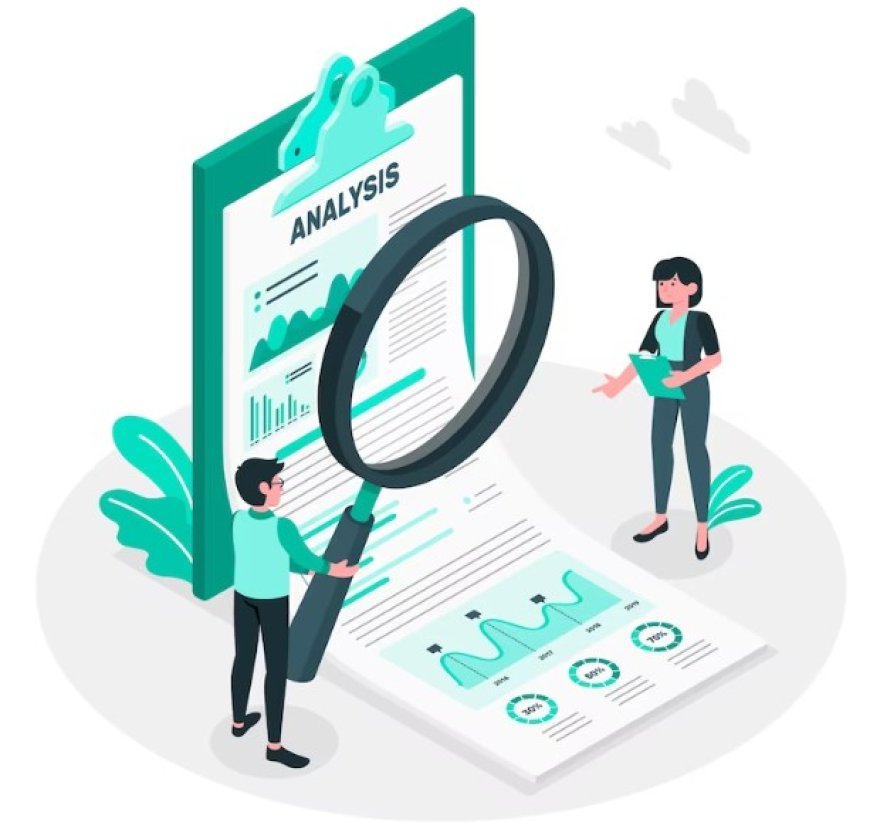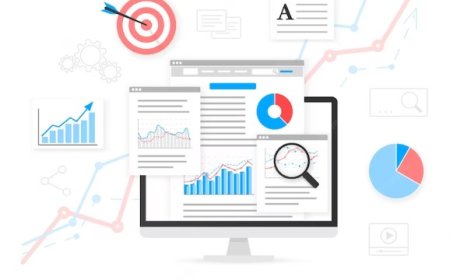Data Analytics in Business: Power of Data for Success
Unlocking business success with the power of data analytics. Harness insights, make informed decisions, and stay ahead of the competition.

In today's data-driven world, businesses have access to an unprecedented amount of information. From customer behaviors and market trends to operational metrics and financial data, the possibilities are endless. However, raw data alone is of little value. The true power lies in extracting meaningful insights and transforming them into actionable strategies. This is where data analytics comes into play. Data analytics enables businesses to make informed decisions, optimize processes, improve performance, and drive innovation. In this blog, we will explore the fascinating world of data analytics in business, uncovering its significance, benefits, and key techniques. So, grab your curiosity hat and let's dive in!
Understanding Data Analytics
Data analytics is the science of examining raw data to uncover patterns, draw conclusions, and support decision-making. It involves the use of various techniques, tools, and algorithms to extract insights from structured and unstructured data. The goal is to transform data into actionable information that can drive business growth and success. Data analytics encompasses a wide range of activities, including data exploration, data visualization, statistical analysis, predictive modeling, and more. By leveraging data analytics, businesses can gain a deeper understanding of their operations, customers, and market dynamics.
Importance of Data Analytics in Business:
Data analytics has become an indispensable tool for businesses across industries. It provides valuable insights that help organizations identify opportunities, optimize processes, and make data-driven decisions. Here are some key reasons why data analytics is essential for business success:
Enhanced Decision-Making: Data analytics provides accurate and timely information, enabling businesses to make informed decisions based on facts and evidence rather than intuition or guesswork.
Improved Operational Efficiency: By analyzing operational data, businesses can identify bottlenecks, streamline processes, and optimize resource allocation, leading to increased efficiency and productivity.
Customer Insights: Data analytics helps businesses understand customer preferences, behaviors, and needs. This knowledge enables targeted marketing campaigns, personalized customer experiences, and improved customer satisfaction.
Competitive Advantage: Organizations that leverage data analytics gain a competitive edge by identifying emerging trends, predicting market shifts, and capitalizing on opportunities faster than their competitors.
Key Techniques in Data Analytics:
Data analytics employs a variety of techniques to extract insights from data. Here are some fundamental techniques used in data analytics:
Descriptive Analytics: Descriptive analytics focuses on summarizing and understanding historical data. It provides insights into past performance, trends, and patterns.
Predictive Analytics: Predictive analytics uses historical data and statistical modeling techniques to make predictions about future outcomes. It helps businesses forecast demand, anticipate customer behavior, and identify potential risks.
Prescriptive Analytics: Prescriptive analytics goes beyond predicting future outcomes by recommending actions to optimize results. It combines historical data, predictive modeling, and optimization algorithms to provide actionable recommendations.
Data Visualization: Data visualization involves representing data in visual formats, such as charts, graphs, and dashboards. It makes complex data easy to understand and helps communicate insights effectively.
Machine Learning: Machine learning algorithms enable computers to learn from data and make predictions or decisions without explicit programming. It is particularly useful for analyzing large datasets and uncovering complex patterns.
Implementing Data Analytics in Business:
To harness the power of data analytics, businesses need to follow a systematic approach. Here are some key steps to implement data analytics in business:
Define Objectives: Clearly define the business objectives that data analytics will support. Whether it's improving customer satisfaction, optimizing operations, or identifying new market opportunities, aligning analytics efforts with business goals is crucial.
Data Collection and Preparation: Gather relevant data from various sources and ensure its quality and integrity. Cleanse and preprocess the data to remove inconsistencies, errors, and duplicates.
Data Analysis and Modeling: Apply appropriate data analytics techniques, such as statistical analysis, machine learning, or predictive modeling, to extract insights from the data. Select and develop models that best suit the business objectives.
Interpretation and Visualization: Analyze the results of data analytics and interpret the findings in the context of business objectives. Visualize the insights using charts, graphs, or interactive dashboards for effective communication.
Action and Monitoring: Develop action plans based on the insights derived from data analytics. Implement the recommended strategies and monitor their impact on key performance indicators. Continuously iterate and refine the analytics process based on feedback and results.
Challenges and Considerations:
While data analytics offers immense potential, there are also challenges to consider. Some common challenges include data privacy and security, data quality issues, resource constraints, and talent shortage. It is crucial for businesses to address these challenges by implementing robust data governance practices, investing in data security measures, ensuring data accuracy, and fostering a data-driven culture within the organization. Additionally, organizations must prioritize the development of data analytics skills and capabilities among their workforce.
Case Studies and Success Stories:
To truly grasp the impact of data analytics in business, let's explore some real-world case studies and success stories:
Netflix: Netflix, the popular streaming platform, leverages data analytics to personalize user recommendations. By analyzing user behavior, viewing history, and preferences, Netflix's recommendation algorithm suggests tailored content, enhancing the user experience and driving engagement.
Walmart: Walmart utilizes data analytics to optimize its supply chain and inventory management. By analyzing sales data, customer trends, and market demand, Walmart can accurately forecast product demand, reduce stockouts, and optimize pricing strategies.
Airbnb: Airbnb uses data analytics to improve its search and recommendation system. By analyzing user search patterns, booking data, and property information, Airbnb provides personalized recommendations and enhances the overall user experience.
Amazon: Amazon is known for its data-driven approach to personalized marketing. By analyzing customer browsing behavior, purchase history, and demographic data, Amazon delivers targeted product recommendations, resulting in increased sales and customer satisfaction.
Ethical Considerations:
As businesses leverage the power of data analytics, it is essential to address ethical considerations. Data privacy, security, and responsible use of data are crucial aspects to consider. Organizations must prioritize data governance, ensure compliance with privacy regulations, and implement robust security measures to protect sensitive data. Additionally, businesses should be transparent in their data collection and usage practices, respecting customer preferences and obtaining appropriate consent.
The Future of Data Analytics in Business
The future of data analytics in business looks promising. Advancements in technology, such as artificial intelligence, machine learning, and big data analytics, will enable even more sophisticated analysis and decision-making. The integration of real-time data streams and the Internet of Things (IoT) will further enhance data analytics capabilities. Additionally, as data literacy becomes a critical skill, businesses will invest in developing analytics talent and fostering a data-driven culture within their organizations.
To put it bluntly,Data analytics has transformed the way businesses operate, enabling informed decision-making, improved efficiency, and competitive advantage. By harnessing the power of data, organizations can gain valuable insights, optimize processes, and drive innovation. However, success in data analytics requires a strategic approach, including defining clear objectives, collecting quality data, applying appropriate techniques, and taking ethical considerations into account. As technology continues to advance and data becomes increasingly available, the future holds even greater potential for businesses that embrace data analytics. So, unleash the power of data, embark on a journey of discovery, and unlock new opportunities for growth and success in the dynamic landscape of business analytics!




























































